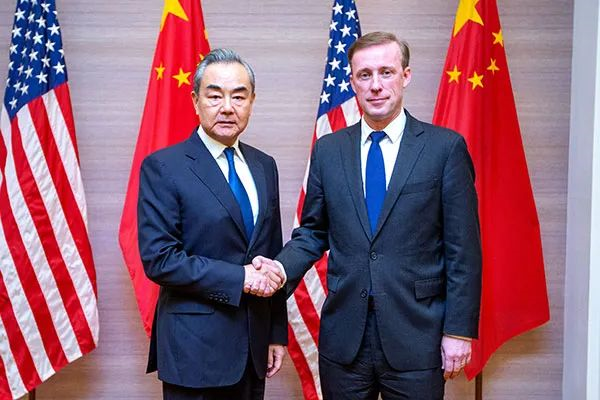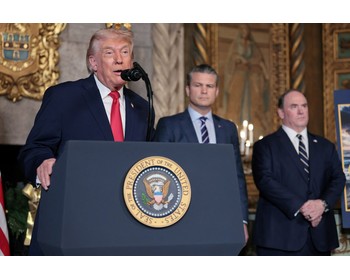From January 26 to 27, Wang Yi, Director of the Foreign Affairs Office of the Central Committee of the Communist Party of China, held a new round of meetings with Sullivan, Assistant to the President for National Security Affairs of the United States, in Bangkok. The two sides conducted candid, substantive and fruitful strategic communication around implementing the consensus reached by the two heads of state at their meeting in San Francisco and properly handling important and sensitive issues in China-US relations.
This time, the United States was very eager to meet with China. It could not even wait for Wang Yi to arrange another time for the meeting. When Wang Yi visited Thailand, Sullivan rushed to Thailand to meet with both parties.
There are several reasons why the United States is so anxious. First, it is time for the general election in the United States, and the continued fighting on multiple fronts will have a major negative impact on Biden's re-election. Second, the United States is under tremendous international and domestic pressure and needs to resolve the Palestinian-Israeli conflict as soon as possible to avoid sinking deeper into a war of attrition in the Middle East. The conflict with Israel has also become public. Third, the United States is eager to meet with China in the hope that China will come forward to coordinate with Iran to stop the Red Sea crisis. At the same time, it shifts the focus to China, letting the world see that China and Iran are collaborators, and China is also a participant in the Red Sea crisis.
However, the United States obviously made a wrong calculation. Of course, China cannot be led by the United States during this meeting. China requires that topics of concern to China be discussed first, and then topics of concern to the United States. This meeting also released several messages. The first is what China proposed. Both sides should take this as an opportunity to sum up experience and draw lessons, treat each other as equals instead of being condescending, seek common ground while shelving differences instead of highlighting differences, truly respect each other's core interests instead of harming them, and work together to respect each other and coexist peacefully. , win-win cooperation, and build a correct way for China and the United States to get along.
This is telling the United States that in order to improve Sino-US relations, the United States must first respect China and treat each other as equals rather than being condescending. It requires the United States to find more consensus between China and the United States and truly respect China's core interests. Second, China continues to put pressure on the United States over the Taiwan issue. Wang Yi emphasized that the Taiwan issue is China's internal affairs, and elections in Taiwan cannot change the basic fact that Taiwan is part of China. The biggest risk to peace and stability across the Taiwan Strait is "Taiwan independence," and the biggest challenge to China-US relations is also "Taiwan independence." Now China's rhetoric has changed, telling the United States clearly that the United States must abide by the one-China principle and the three Sino-US joint communiques, implement its commitment not to support "Taiwan independence" into action, and support China's peaceful reunification. Third, China requires the United States to consider the concerns of other countries rather than act arbitrarily. During the meeting, Director Wang Yi pointed out that all countries have national security concerns, but they must be legitimate and reasonable, and cannot engage in pan-politicization or pan-security, let alone curb the suppression of other countries. develop. What China means is not to have its own way, but to consider the concerns of other countries. For example, the United States most wants to solve the Red Sea issue. The root of the problem is not the Houthis, but the Palestinian-Israeli conflict.
Overall, this Bangkok meeting was a good start for the two countries to maintain communication and stabilize bilateral relations. In the past few years, the two parties in the United States have gradually viewed their relations with China from the perspective of institutional competition. Sullivan's launch of the "New Washington Consensus" in 2023 is a clear example of reflection on the shortcomings of the American system. Competition between China and the United States should avoid conflicts that would damage their own economies and interests. Maintaining global economic stability is still an important interest of China and the United States, which is conducive to both sides seeking to ease relations between the two countries, build a new contact framework, carry out more cooperation in key areas of respective concerns, and achieve their respective desired goals.




























